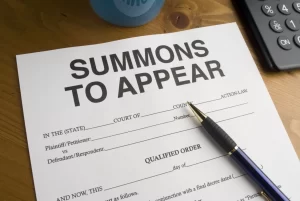What is Admissible Evidence in Family Court?
Family court handles a wide variety of cases related to family legal matters, including divorce, child custody, child support, and domestic violence. The rules of evidence that apply in family court are generally less strict than those that apply in criminal cases. However, there are still important rules regarding what types of evidence can be presented in a family court proceeding. Understanding these rules is critical for anyone going through the family court process.
Overview of Evidence Rules in Family Court
The main purpose of evidentiary rules in family court is to facilitate fair and efficient resolution of family law disputes. The court wants to admit reliable evidence that helps determine facts relevant to the case. However, the court also wants to exclude misleading or overly prejudicial evidence that could distort the truth.
Some key principles regarding admissibility of evidence in family court include:
- Relevance – The evidence must relate to facts that are directly at issue in the case. Irrelevant evidence will be excluded.
- Reliability – The court wants to admit evidence that is likely to reflect objective facts as opposed to speculation or hearsay. However, hearsay is sometimes allowed in family court.
- Undue prejudice – The probative value of the evidence must outweigh any unfair prejudice, confusion, or potential to mislead.
- Burden of proof – The burden is usually lower in family court than criminal court. The standard is often “preponderance of evidence” rather than “beyond reasonable doubt.”
Types of Evidence Commonly Allowed
Certain kinds of evidence come up frequently in family court proceedings. Here are some examples of evidence commonly allowed:
Testimony
- Party testimony – The parties themselves (plaintiff/defendant, husband/wife) can offer testimony regarding facts relevant to the case. The court may give less weight to self-serving party testimony.
- Third party testimony – Testimony from witnesses with direct knowledge of facts at issue can be admitted. These could include friends, teachers, doctors, therapists, etc.
- Expert testimony – Qualified experts can testify to provide specialized knowledge that helps resolve disputed facts requiring professional expertise. These could include accountants, psychologists, vocational experts, etc.
Documents
- Financial records – Tax returns, bank statements, accounting ledgers, business records, and other financial documents may be used to determine income, assets, liabilities, and spending relevant to issues like child support and spousal maintenance.
- Written agreements – Prenuptial agreements, postnuptial agreements, separation agreements, and other written contracts between the parties can be admitted.
- Records and correspondence – Medical records, school records, employment records, emails, text messages, and other documents may be allowed if relevant to facts at issue.
- Police reports and court records – For issues like domestic violence and child custody, records relating to prior criminal charges, protection orders, and complaints can be admissible.
Demonstrative Evidence
- Photographs and video – Photos, videos, and audio recordings may be allowed if accurate and relevant to disputed facts. These could show living conditions, relationships, etc.
- Charts and diagrams – If created reliably, these visual aids can help explain financial, medical, or other complex information to the court.
Common Evidentiary Issues in Family Court
Certain types of evidence frequently raise admissibility challenges in family court. Here are some key areas where evidence disputes arise:
Hearsay
Hearsay is a statement made out of court that is offered for the truth of the matter asserted. While hearsay is generally prohibited in criminal court, the family court rules are looser. Secondhand testimony may be allowed if the court finds indicia of reliability and it serves the interests of justice. However, multiple layers of hearsay face more scrutiny.
Character evidence
Evidence offered solely to attack someone’s general moral character is usually excluded as unfairly prejudicial. But the court may allow evidence of reputation, conduct, and prior bad acts if sufficiently relevant to issues being decided (e.g. domestic violence, child safety). Specific examples must be provided, not just general opinions.
Evidence of adultery
Mere rumor or suggestion of infidelity is inadmissible. However, direct evidence of adultery may be allowed if it relates to grounds for divorce or other material issues. Photos, investigator testimony, hotel receipts, love letters, and other documentation may be offered.
Privileged communications
Confidential exchanges with doctors, therapists, clergy, and attorneys are generally privileged from disclosure. But exceptions exist, such as the crime-fraud exception, imminent harm to self/others, or written waiver of privilege. Asserting these privileges often leads to disputes.
Social media
Social media posts, messages, and photos with relevant factual admissions may be allowed. But authentication and hearsay problems can exclude this evidence. Stalking a spouse’s Facebook page generally yields little admissible evidence.
Expert opinions
When basing their testimony mainly on controversial techniques or questionable data sources, experts may have their opinions excluded as unreliable or speculative under Daubert/Frye standards. This often occurs with psychologists, vocational experts, and valuation experts.
Key Takeaways on Admissible Evidence in Family Court
- Evidentiary rules in family court aim to be flexible but still value reliable, relevant facts over speculation.
- Many types of evidence commonly allowed, but hearsay and character attacks face more scrutiny.
- Key disputes over privileges, social media, and expert reliability arise frequently.
- Burden of proof is lower than in criminal court, but evidence cannot be overly prejudicial.
- The judge has broad discretion to admit or exclude evidence based on the circumstances of the case.
Understanding these evidentiary standards in family court is essential for effective case preparation and advocacy. Consult with an experienced local family law attorney when preparing for trial.
Conclusion
The rules of evidence in family court aim to provide the judge with the most reliable and relevant facts possible to make a fair ruling. While the standards are intended to be flexible, there are still important guidelines dictating what evidence is likely to be deemed admissible versus inadmissible. Key concepts like relevance, reliability, credibility, authenticity, and prejudice value shape judges’ decisions on evidentiary disputes.
Parties should understand these standards thoroughly when gathering and preparing evidence for trial. Trying to introduce evidence that is clearly barred under the rules of evidence will hurt your credibility and undermine your case. An experienced family law attorney can provide invaluable guidance on evidence strategy and putting your best case forward under the rules. With proper admission of quality evidence and effective advocacy, you can persuade the judge that your side merits receiving a favorable outcome.
FAQs
What are some examples of inadmissible evidence in family court?
Some examples of evidence likely to be deemed inadmissible include hearsay statements with no exception, settlement offers to compromise, privileged therapist-patient communications, unreliable opinions by hired experts, character testimony by those with no personal knowledge, and police reports containing multiple levels of hearsay.
How is the burden of proof different in family court vs. criminal court?
In criminal court, the standard is “beyond a reasonable doubt” which is a very high bar. But in family court, the burden is usually “preponderance of the evidence” meaning the judge just needs to find the facts slightly favor one side over the other, based on the greater weight of credible evidence presented.
Can you bring up a spouse’s sexual history in court?
Specific instances of marital infidelity may be admissible if relevant to issues like custody or distribution of assets. But introducing general evidence of a spouse’s sexual history merely to attack their character would likely be prohibited.
Can text messages be used as evidence in court?
Yes, text messages can be admitted as evidence in family court provided they are properly authenticated as coming from a certain person and they contain factual admissions relevant to issues in dispute. Mere rumor or speculation contained in texts would likely be inadmissible.
What makes an expert witness qualified to testify on a subject?
To be qualified as an expert, the witness should have extensive education, training, and experience in the subject matter and use reliable principles and methods in their analysis. Their testimony should be relevant and helpful to the court in resolving disputed technical or scientific issues.







